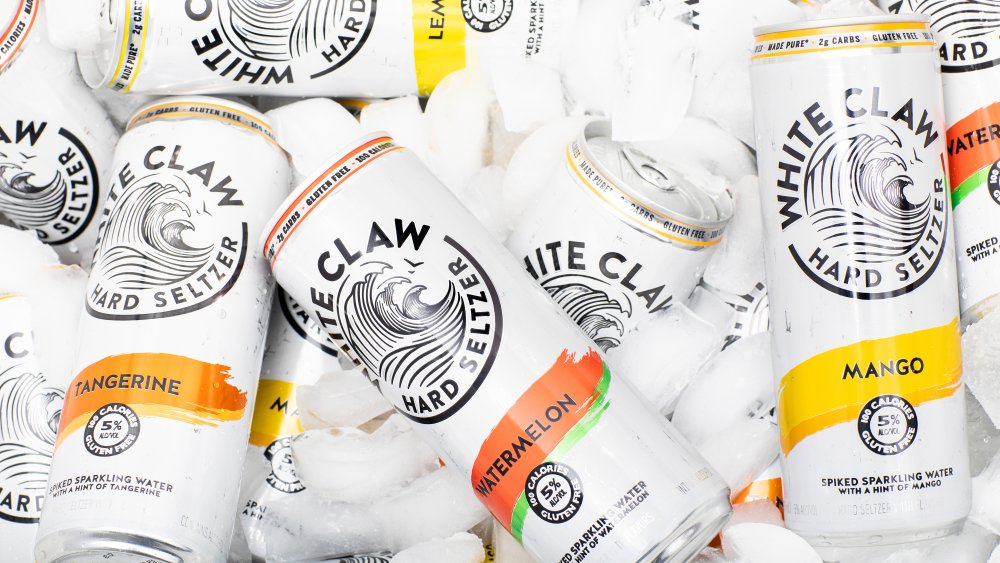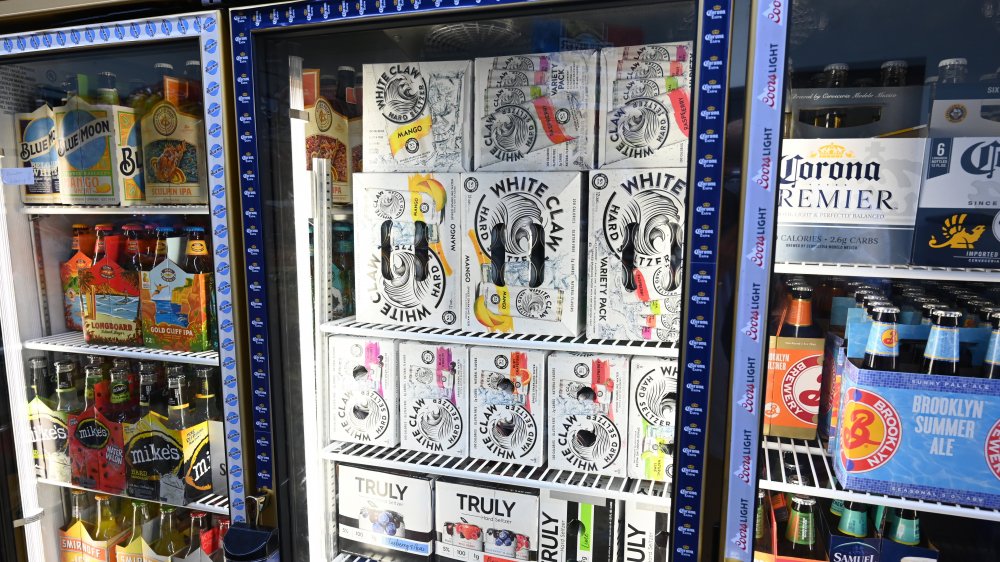Is White Claw Healthier Than Beer?
With summer around the corner, peak White Claw season will soon be upon us. Ahead of the warmer weather months, the hard seltzer brand recently revealed new flavors, much to the delight of fans everywhere. White Claw, owned by CEO Anthony von Mandl of Mark Anthony Brands, is becoming more popular than beer. This past July, it dominated beverage sales, claiming 60 percent of the hard seltzer market in the U.S. and outselling every craft beer brand, even industry giant Budweiser (via The Daily Beast).
A big factor in White's Claw success, especially among younger consumers, is its perceived health benefits. Marketed with the tagline "Made Pure," a 12-ounce can of the gluten-free hard seltzer boasts just 100 calories and two grams of carbs. In comparison, a 12-ounce bottle of Budweiser contains about 145 calories and 10.6 grams of carbs, as seen in PopSugar. And there's a certain impression among consumers that White Claw is a "clean" source of alcohol that is "less taxing on their bodies," and "less filling or bloating than beer or sweet cocktails" (via The Takeout). But is the spiked seltzer actually healthier than beer?
White Claw vs. beer
According to Insider, part of White Claw's popularity is its "drinkability, which is also a flaw if you're trying to limit your drinking and your calories." The impression that the hard seltzer is healthier than other alcoholic beverages often leads people to drink several cans of it, consuming the same number of calories as a few cans of beer, and therefore minimizing any potential for weight loss.
Additionally, experts say that spiked seltzers do nothing for your health because they contain empty calories. Mia Syn, a registered dietitian nutritionist in Charleston, South Carolina, told Everyday Health that hard seltzers such as White Claw have "no real nutritional benefits," like vitamins and minerals, and that "it's important to keep empty calories to a minimum."
At the end of the day, White Claw is still alcohol, and yes, it does have less calories and carbs than many beers, if you're stopping at one, that is. But excess alcohol consumption, regardless of the source, leads to long-term health effects including "high blood sugar, heart disease, stroke, digestive problems, liver disease, cancer and more" (via U.S. News Health). So the next time you're kicking with a can of White Claw, remember: Moderation is key.

